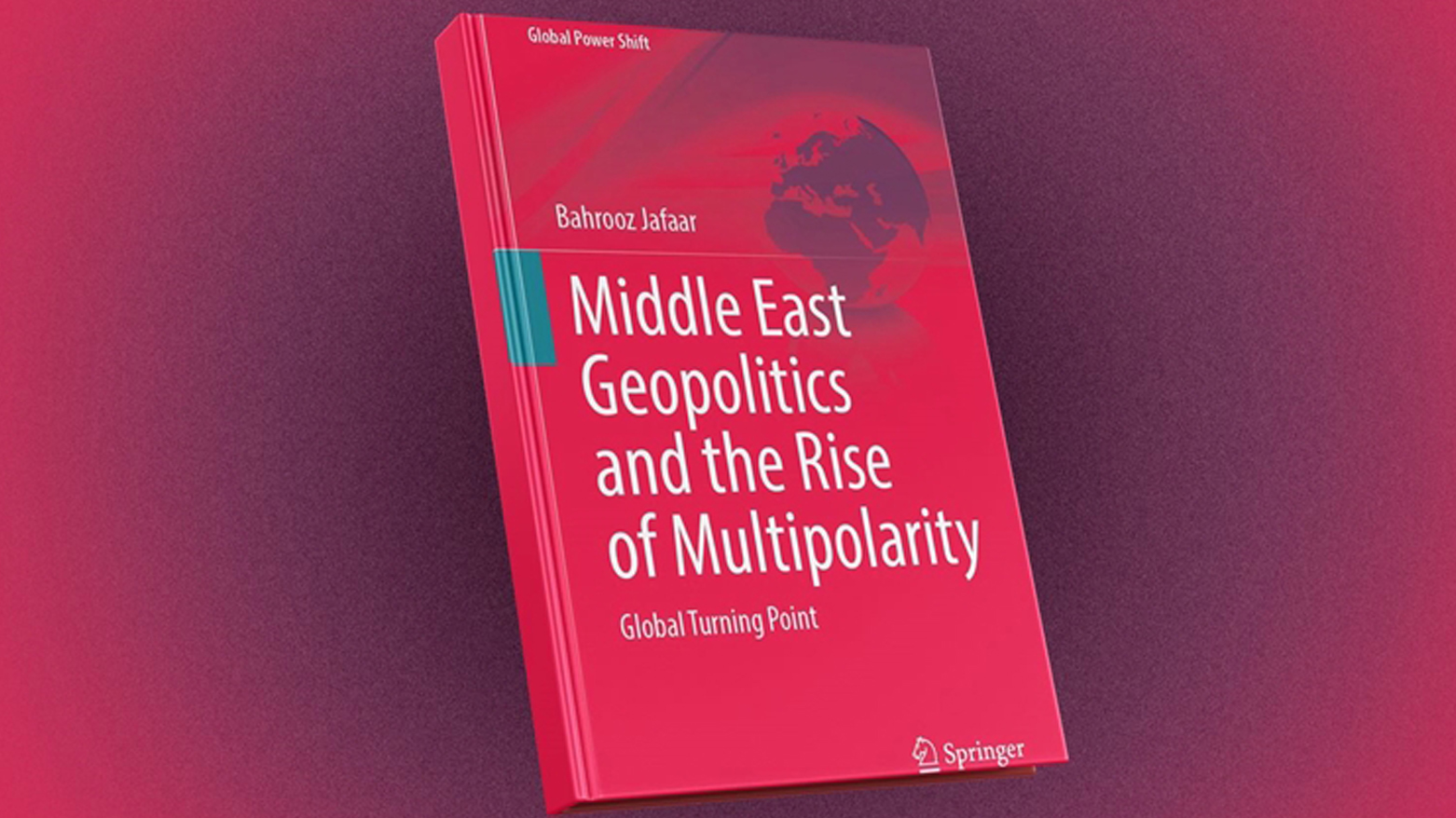A Kurdish Scholar’s Insightful Book on Multipolarity Released by Springer
198 pages, the book explores the transition of global power from a unipolar order to a multipolar world while also addressing the role of non-state actors and technology giants, including artificial intelligence, in reshaping the international system.

ERBIL (Kurdistan24) - One of the world’s ten most influential academic publishers, Springer, with a strong presence in every major academic field, has published a groundbreaking book by Kurdish scholar Dr. Bahrooz Jaafar. The book, entitled Middle East Geopolitics and the Rise of Multipolarity: Global Turning Point, is available in English across 7,000 institutions and libraries worldwide and can now be accessed in 180 countries, with prices ranging between €120 and €307 depending on the region.
Major global platforms such as Springer, Amazon, Barnes & Noble, Bookshop, Indigo, Lehmanns Media, Orell Füssli, Lateknightbooks, Google Books, and many others are carrying the book. Spanning 198 pages, it explores the transition of global power from a unipolar order to a multipolar world while also addressing the role of non-state actors and technology giants, including artificial intelligence, in reshaping the international system.
The book begins by examining the concept of polarization in international relations, identifying a new, yet largely undeclared, phase that humanity is entering somewhere between a multipolar and a non-polar world. It highlights the growing influence of China’s soft power through the Belt and Road Initiative and sheds light on the rise of middle power countries that may not yet be superpowers but wield significant influence over global decisions. Amid intensifying divisions between alliances such as NATO and BRICS and the decline in U.S.–China trade relations, the book argues that the Middle East will be a focal point of global transformation.
By offering critical insights into these shifts, the book appeals to students, researchers, and policymakers seeking to understand today’s rapidly changing global order.
The Significance of the Publisher
Beyond the importance of its content, the book’s publication by Springer, a prestigious global publisher founded in Berlin in 1842, with offices in over 40 international capitals, underscores its academic value. Springer ranks among the world’s top ten publishers and is renowned for its high standards in science, engineering, medicine, and the social sciences.
About the Author
Dr. Bahrooz Jaafar, born in the Chamchamal district in the Kurdistan Region, holds a PhD in International Economic Relations. He is the founder and president of the Mediterranean Institute for Regional Studies (MIRS) and has more than 18 years of expertise in energy security, energy geopolitics, and Middle Eastern affairs. His work is widely cited in international journals, think tanks, and media outlets.
His previous book, Deciphering the Eastern Mediterranean’s Hydrocarbon Dynamics: Unraveling Regional Shifts (Emerald Publishing, 2024), is available in 140 countries.
Why is this book of Particular Interest?
BRICS and the Future of Global Currency: The book offers a comprehensive analysis of BRICS and the global financial order, examining why efforts to de-dollarize are unlikely to succeed in the near future. Despite challenges, the U.S. dollar remains the dominant global reserve currency. The book offers strategic recommendations for how the U.S. and its allies can restore influence and safeguard Western interests in this new era of transformation.
Redefining the International Polar System: This is one of the first academic attempts to assess the potential transition to a post-polar world, making it a pioneering contribution to international relations. It traces the origins of global polarity—unipolarity, bipolarity, and multipolarity—and explores the growing reach of China’s soft power, particularly in the Middle East.
Understanding Middle East Geopolitical Dynamics: The book provides the first in-depth analysis of Middle East geopolitics following the Gaza war of October 7, 2023. It considers the region through historical, geopolitical, and economic lenses, highlighting the rising influence of Gulf states, especially Saudi Arabia, as a middle power globally and a great power regionally. It also addresses pressing issues such as drug trafficking, water scarcity, energy security, and hydrocarbon capacity.
Highlighting the Global Turning Point: Dr. Jaafar emphasizes the transformative forces of technological determinism, AI, and China’s Belt and Road Initiative, along with the decisive role of middle powers and non-state actors—especially tech companies and social media platforms. The book also offers new theoretical insights into these dynamics, providing a framework for understanding the unprecedented shifts shaping the world.
The Crucial Role of Middle Powers in a Shifting Global Landscape: The rise of middle powers is presented as central to a new multilateralism. As long-term alliances weaken, these states increasingly prioritize national interests. From the Arab Spring to the post-Gaza conflict, influence in the Middle East has shifted from the U.S. toward regional actors such as Qatar, Saudi Arabia, and the UAE. Simultaneously, the U.S. strengthens ties with India, which remains a BRICS member, a major importer of Iranian oil, and until recently, a primary buyer of Russian arms.
Ultimately, the book presents a rigorous analysis of pivotal events, including the U.S. wars in Iraq and Afghanistan, and offers forward-looking recommendations for navigating the future of global politics.